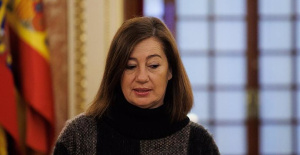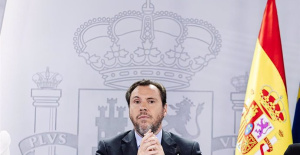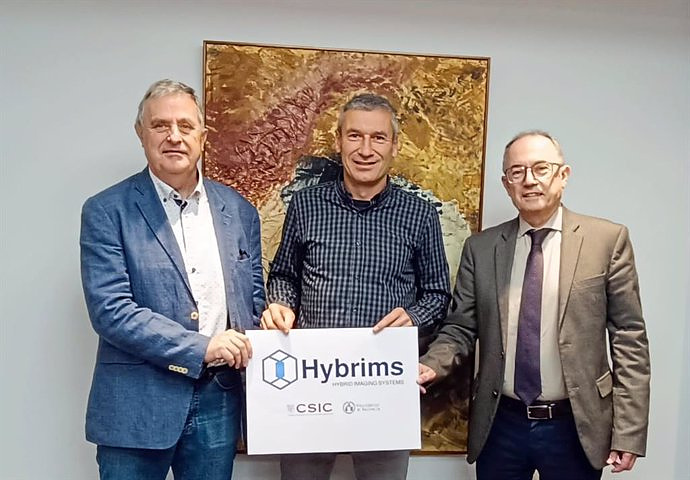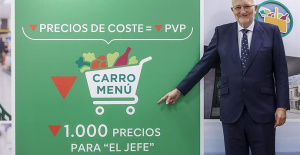Progressive members maintain the name of Bandrés, while the conservatives insist on Tolosa and change Lucas to Segoviano
MADRID, 25 Dic. (EUROPA PRESS) -
The General Council of the Judiciary (CGPJ) will hold this Tuesday, at 4:30 p.m., an extraordinary plenary session to vote for the second time for the candidates that it is responsible for appointing the Constitutional Court (TC). Two of the three candidates repeat on this occasion, Supreme Court (TS) magistrates César Tolosa --for the conservative wing-- and José Manuel Bandrés --for the progressive bloc--; The novelty, at the request of the conservatives, is the retired magistrate of the TS María Luisa Segoviano, who appeared on the initial list of nine names of the progressives.
Until now, the balance of forces in the CGPJ --with 8 progressive members and 10 conservatives-- has made an agreement impossible. In the December 20 vote, the two nominees for the majority sector, Tolosa and Pablo Lucas, obtained 10 votes, while Bandrés obtained 7, because the member Enrique Lucas had to abstain because his brother was one of The candidates.
For the white smoke, 11 yeses are necessary, something that until now has not been possible because the members have voted en bloc and none have stepped down to change the balance. The current rules impose a three-fifths majority to send candidates to the Constitutional Court and allow each of the 18 members that currently make up the CGPJ to propose and vote for two applicants.
CGPJ sources consulted by Europa Press indicate that the conservative wing has opted to include a progressive name in its tandem (first Lucas and now Segoviano) so that their counterparts resign Bandrés, a magistrate on whom the conservatives have imposed a tacit veto. For the moment, however, the progressive wing keeps the name of Bandrés on the table.
The candidacy of Tolosa and Segoviano was endorsed with the signature of 6 of the 10 members of the conservative bloc. Bandrés arrives with the support of 7 of the 8 that make up the progressive sector, in the absence of the signature of the vocal Enrique Lucas.
Some sources consider that this lack of unanimity regarding Bandrés' candidacy could translate into one more vote for Tolosa and Segoviano, which would be enough for them to be elected.
Other voices consulted, however, downplay the matter and specify that Lucas's absence is out of respect for his brother, who last week was listed as a candidate for the TC. They also add that there was no unanimity in the conservative sector either.
However, the sources recall that until Tuesday, at 4:30 p.m., other candidates may be proposed and they do not rule out that another name be added to the vote.
The conclave on December 27 is a new opportunity for the CGPJ to choose the two magistrates that it must send to the Constitutional Court, but if each block returns to vote only for its own and none yields, the blockade will continue.
The conservative members seek to resolve the issue of appointments to the Constitutional Court before the amendments are approved - now paralyzed, but which could be processed through another parliamentary channel - which modifies the system of election and arrival of the two candidates who names the CGPJ.
The sources consulted explain that the rush that has arisen in the conservative sector is due to the fact that the aforementioned reform will change the voting system favoring the two candidates with the most votes, with which one of each block would emerge victorious, in the case of the progressive current: Bandrés.
The Constitutional Court has been waiting since June 12 for the four magistrates who make up the third that the Constitution mandates to replace the Government and CGPJ to be renewed: Pedro González-Trevijano and Antonio Narváez, appointed in their day by the Executive of Mariano Rajoy; and Juan Antonio Xiol and Santiago Martínez-Vares, appointed at the time by the governing body of the judges.
The legal doubts about the possibility that the two Moncloa candidates could take office without waiting for the two from the CGPJ led to the promotion and approval last July in Parliament of an express reform of the Organic Law of the Judiciary (LOPJ) to return to the Council his power to appoint his two applicants to the court of guarantees.
In this context, PSOE and Unidas Podemos designed the aforementioned reform, which, in addition to changing the voting system in the CGPJ, clears the obstacles for those nominated by the Government on November 29, the former Minister of Justice Juan Carlos Campo and the former high office of Moncloa Laura Díez, can take office as magistrates of the TC without having to wait for the two from the Council.
This Tuesday will be the second attempt by the CGPJ in a week to reach a consensus that allows the election of the two magistrates that the Constitutional Court is responsible for appointing. Tolosa, Segoviano and Bandrés will compete to get the support of three fifths of the members.

 Exploring Cardano: Inner Workings and Advantages of this Cryptocurrency
Exploring Cardano: Inner Workings and Advantages of this Cryptocurrency Seville.- Economy.- Innova.- STSA inaugurates its new painting and sealing hangar in San Pablo, for 18 million
Seville.- Economy.- Innova.- STSA inaugurates its new painting and sealing hangar in San Pablo, for 18 million Innova.- More than 300 volunteers join the Andalucía Compromiso Digital network in one month to facilitate access to ICT
Innova.- More than 300 volunteers join the Andalucía Compromiso Digital network in one month to facilitate access to ICT Innova.-AMP.- Ayesa acquires 51% of Sadiel, which will create new technological engineering products and expand markets
Innova.-AMP.- Ayesa acquires 51% of Sadiel, which will create new technological engineering products and expand markets Putin begins his fifth term demanding the "security" and "unity" of Russia
Putin begins his fifth term demanding the "security" and "unity" of Russia Almeida points to the death of two workers after being trapped under an 8-ton slab in Madrid
Almeida points to the death of two workers after being trapped under an 8-ton slab in Madrid Armengol and two former senior officials from the Balearic Islands, summoned by the Congressional commission on masks
Armengol and two former senior officials from the Balearic Islands, summoned by the Congressional commission on masks Puente assures that if he had known the impact of his words on Milei he would not have said them
Puente assures that if he had known the impact of his words on Milei he would not have said them How Blockchain in being used to shape the future
How Blockchain in being used to shape the future Not just BTC and ETH: Here Are Some More Interesting Coins Worth Focusing on
Not just BTC and ETH: Here Are Some More Interesting Coins Worth Focusing on They develop devices for the precise diagnosis of cancer patients
They develop devices for the precise diagnosis of cancer patients UMH researchers are working on a high-quality apricot crop that requires less irrigation water
UMH researchers are working on a high-quality apricot crop that requires less irrigation water The UPV develops an application to improve the quality of life of patients with glioblastoma
The UPV develops an application to improve the quality of life of patients with glioblastoma A sensor system obtains the fingerprint of essential oils and detects if they have been adulterated
A sensor system obtains the fingerprint of essential oils and detects if they have been adulterated A million people demonstrate in France against Macron's pension reform
A million people demonstrate in France against Macron's pension reform Russia launches several missiles against "critical infrastructure" in the city of Zaporizhia
Russia launches several missiles against "critical infrastructure" in the city of Zaporizhia A "procession" remembers the dead of the Calabria shipwreck as bodies continue to wash up on the shore
A "procession" remembers the dead of the Calabria shipwreck as bodies continue to wash up on the shore Prison sentences handed down for three prominent Hong Kong pro-democracy activists
Prison sentences handed down for three prominent Hong Kong pro-democracy activists ETH continues to leave trading platforms, Ethereum balance on exchanges lowest in 3 years
ETH continues to leave trading platforms, Ethereum balance on exchanges lowest in 3 years Investors invest $450 million in Consensys, Ethereum incubator now valued at $7 billion
Investors invest $450 million in Consensys, Ethereum incubator now valued at $7 billion Alchemy Integrates Ethereum L2 Product Starknet to Enhance Web3 Scalability at a Price 100x Lower Than L1 Fees
Alchemy Integrates Ethereum L2 Product Starknet to Enhance Web3 Scalability at a Price 100x Lower Than L1 Fees Mining Report: Bitcoin's Electricity Consumption Declines by 25% in Q1 2022
Mining Report: Bitcoin's Electricity Consumption Declines by 25% in Q1 2022 Oil-to-Bitcoin Mining Firm Crusoe Energy Systems Raised $505 Million
Oil-to-Bitcoin Mining Firm Crusoe Energy Systems Raised $505 Million Microbt reveals the latest Bitcoin mining rigs -- Machines produce up to 126 TH/s with custom 5nm chip design
Microbt reveals the latest Bitcoin mining rigs -- Machines produce up to 126 TH/s with custom 5nm chip design Bitcoin's Mining Difficulty Hits a Lifetime High, With More Than 90% of BTC Supply Issued
Bitcoin's Mining Difficulty Hits a Lifetime High, With More Than 90% of BTC Supply Issued The Biggest Movers are Near, EOS, and RUNE during Friday's Selloff
The Biggest Movers are Near, EOS, and RUNE during Friday's Selloff Global Markets Spooked by a Hawkish Fed and Covid, Stocks and Crypto Gain After Musk Buys Twitter
Global Markets Spooked by a Hawkish Fed and Covid, Stocks and Crypto Gain After Musk Buys Twitter Bitso to offset carbon emissions from the Trading Platform's ERC20, ETH, and BTC Transactions
Bitso to offset carbon emissions from the Trading Platform's ERC20, ETH, and BTC Transactions Draftkings Announces 2022 College Hoops NFT Selection for March Madness
Draftkings Announces 2022 College Hoops NFT Selection for March Madness
























